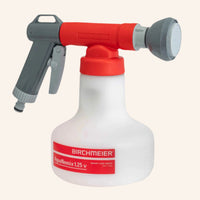
Nematodes against grubs
Regular price
€16,50
Surface
Voor 23:59 besteld, morgen in huis
Gratis verzending (NL)
100% duurzame en biologische producten
Onze klanten geven ons een 9,4/10
Voor 23:59 besteld, morgen in huis
Gratis verzending (NL)
100% duurzame en biologische producten
Onze klanten geven ons een 9,4/10
Nematodes against grubs
Regular price
€16,50
Surface

Nematodes against grubs
€16,50
Plaag vrij in 3 stappen

Strijtveen & Wagenaar
Wij gebruiken geen chemische middelen, want wat slecht is voor de natuur, is uiteindelijk ook slecht voor jou. Onze oplossingen zijn veilig voor jou, je kinderen én de omgeving.























